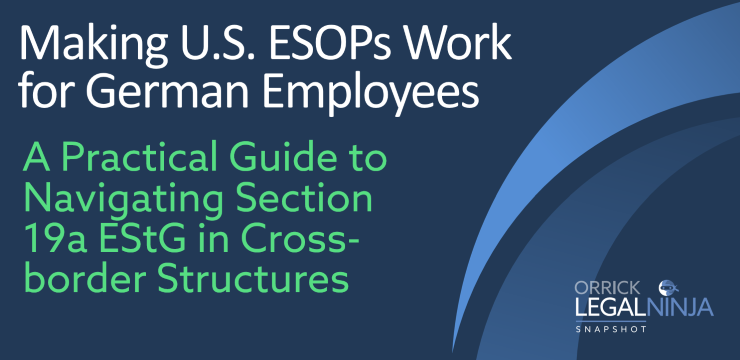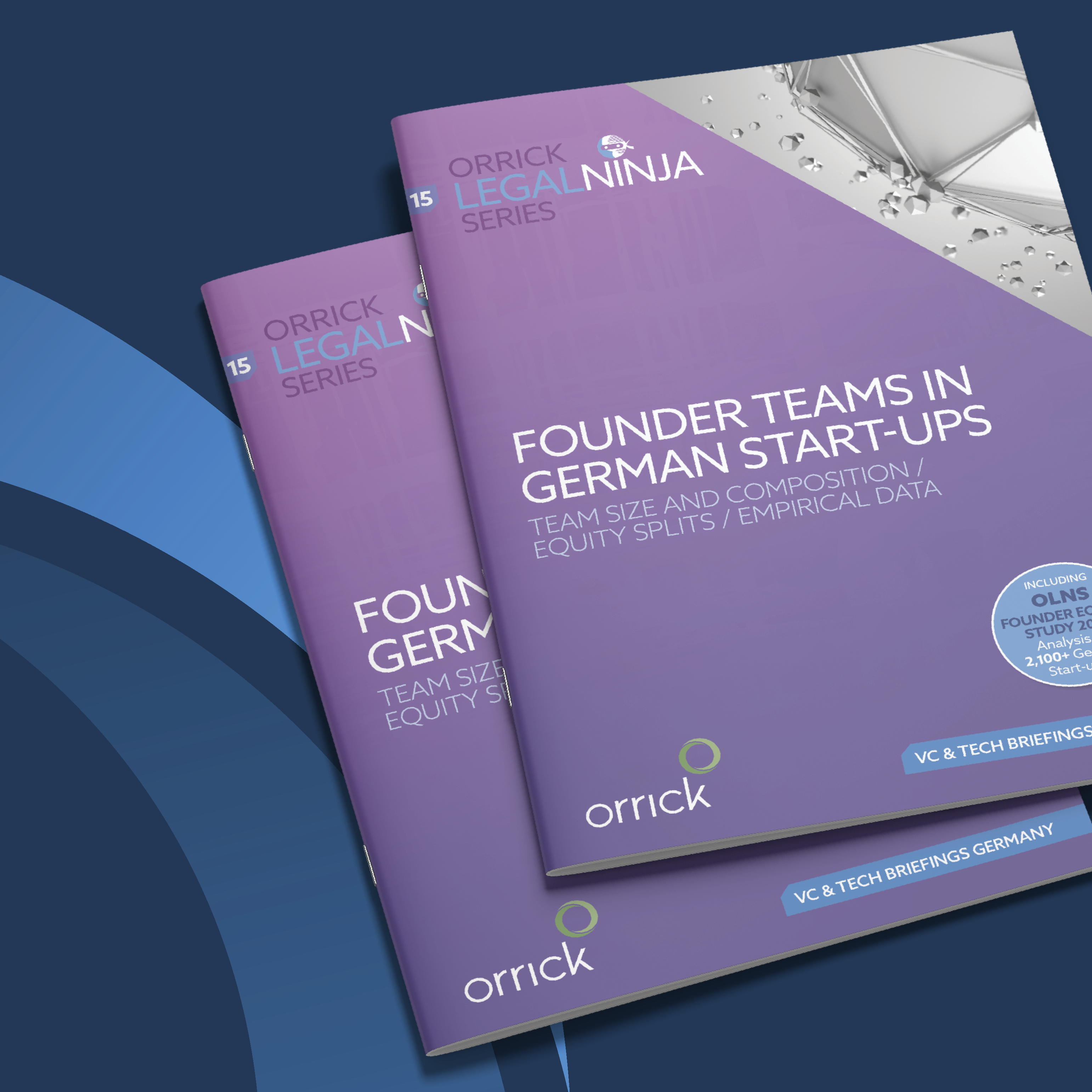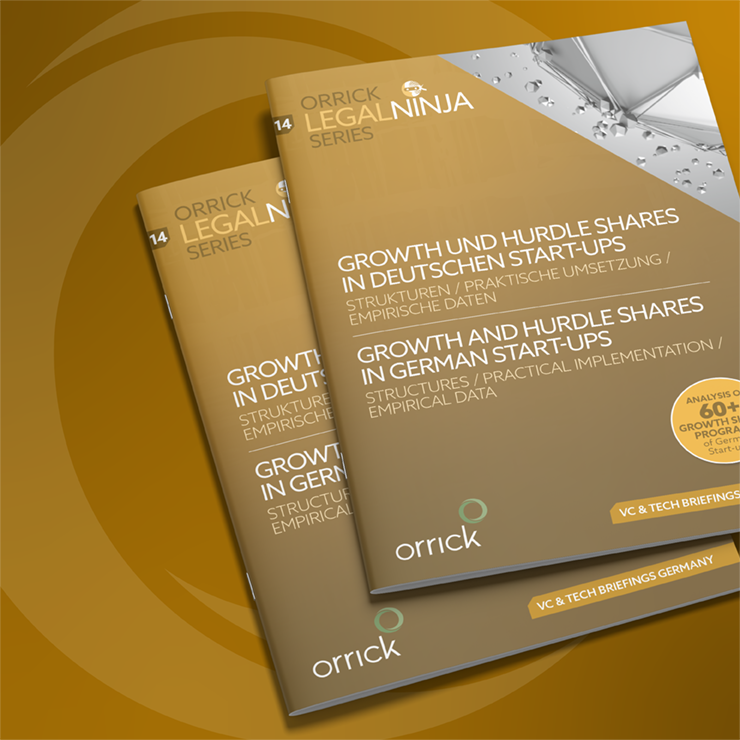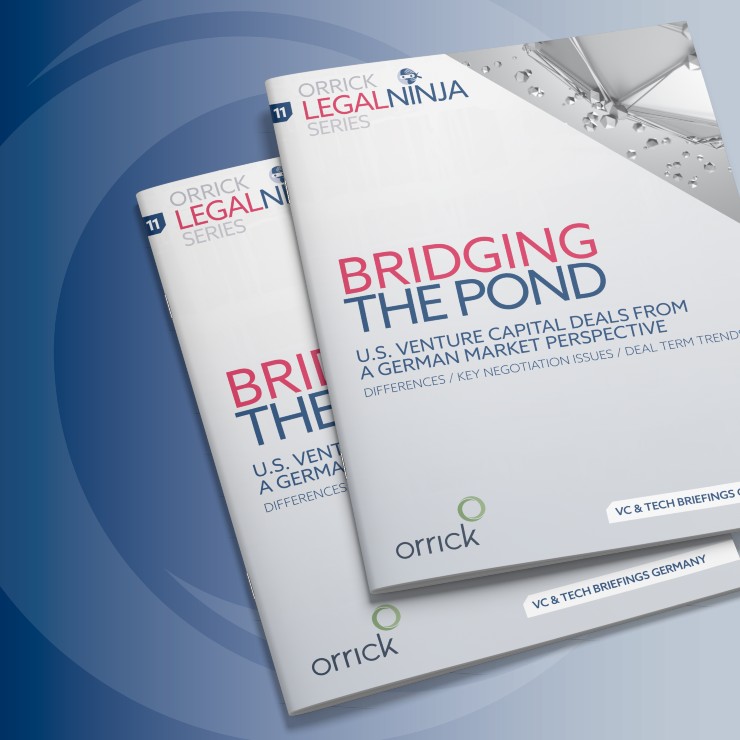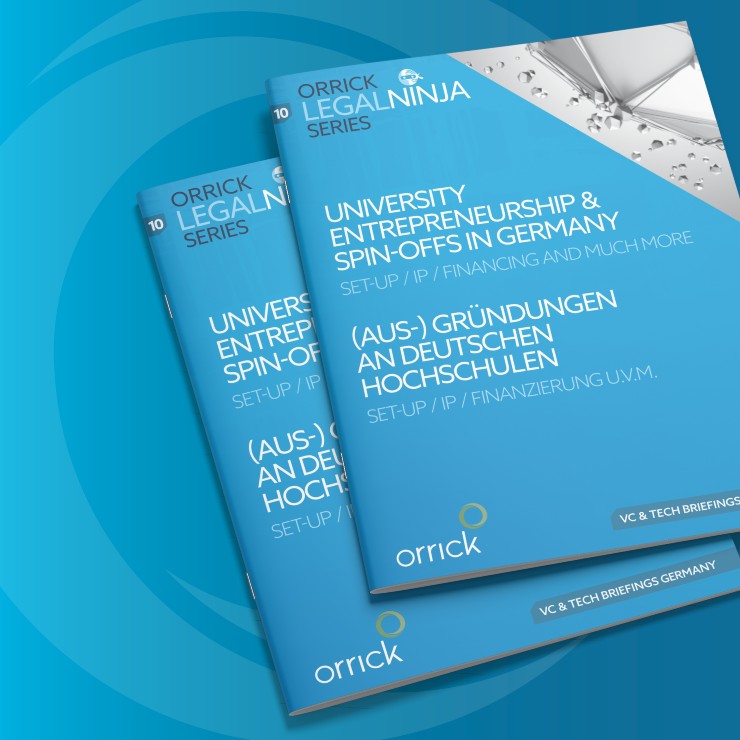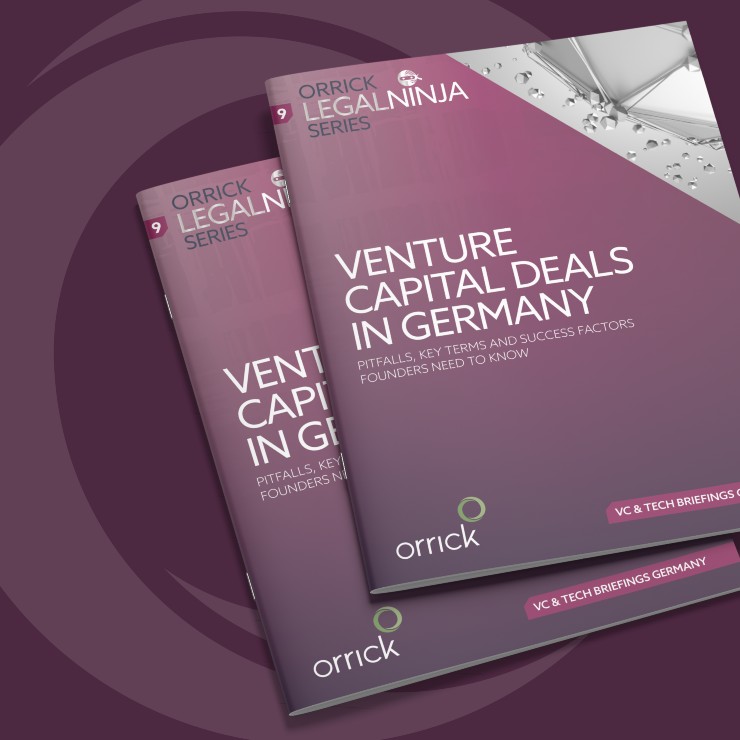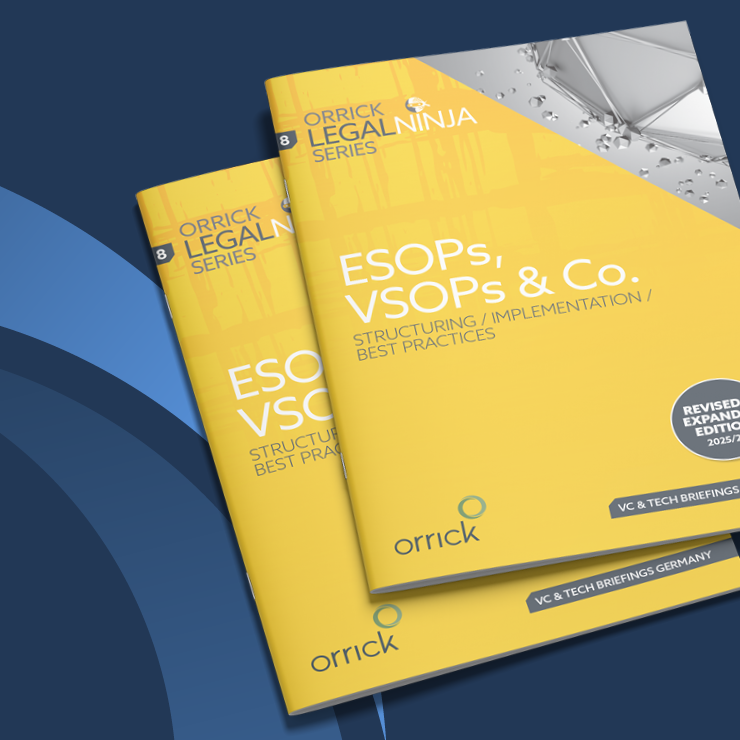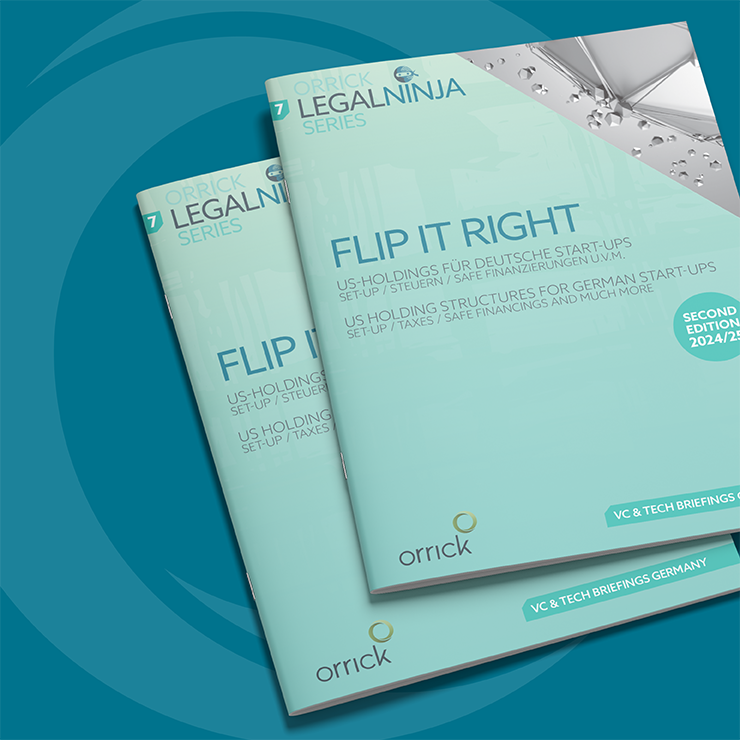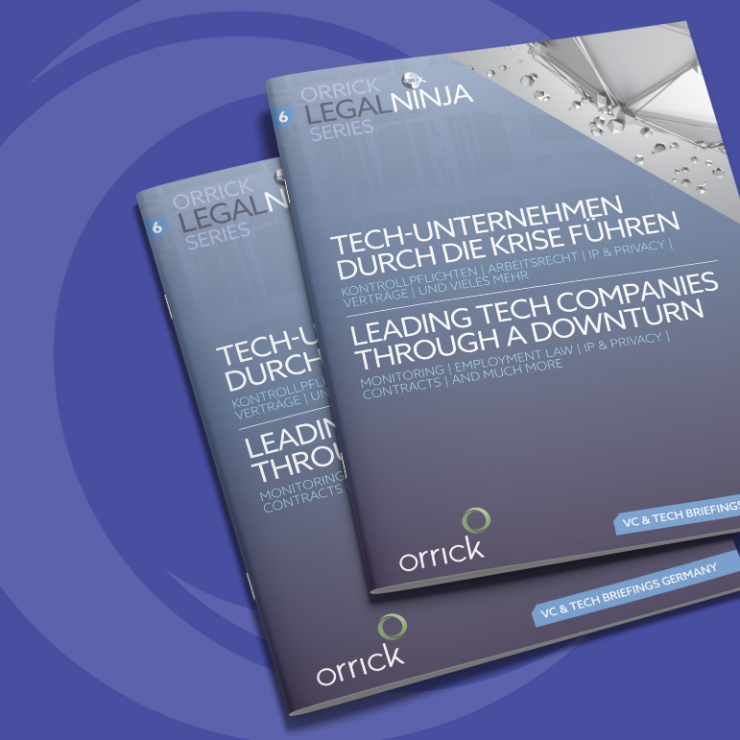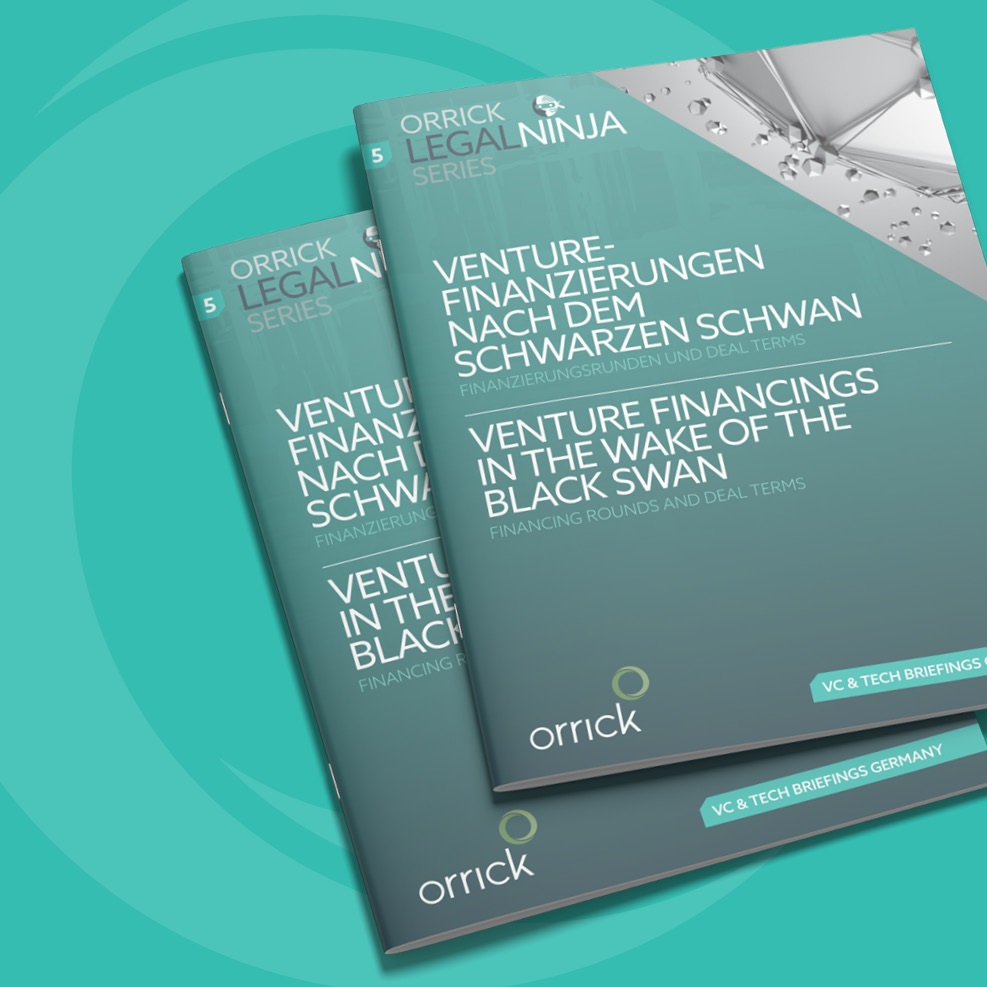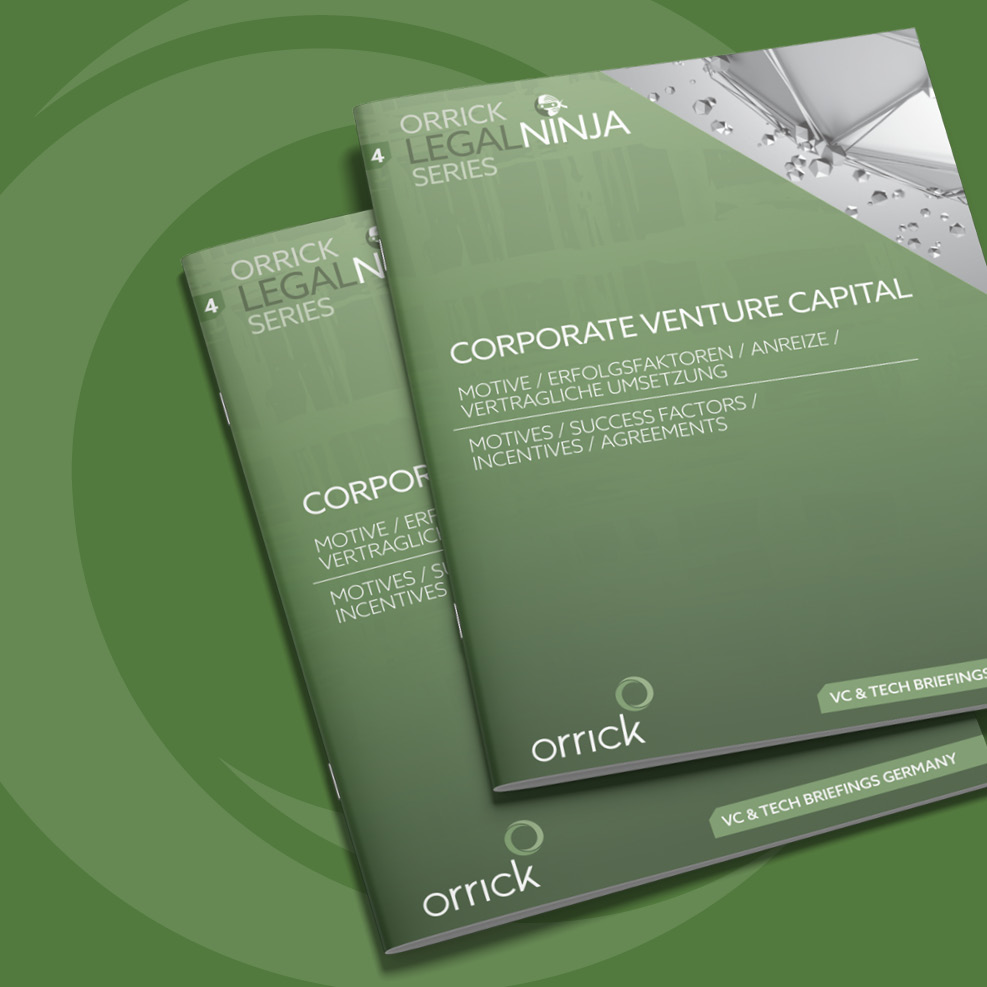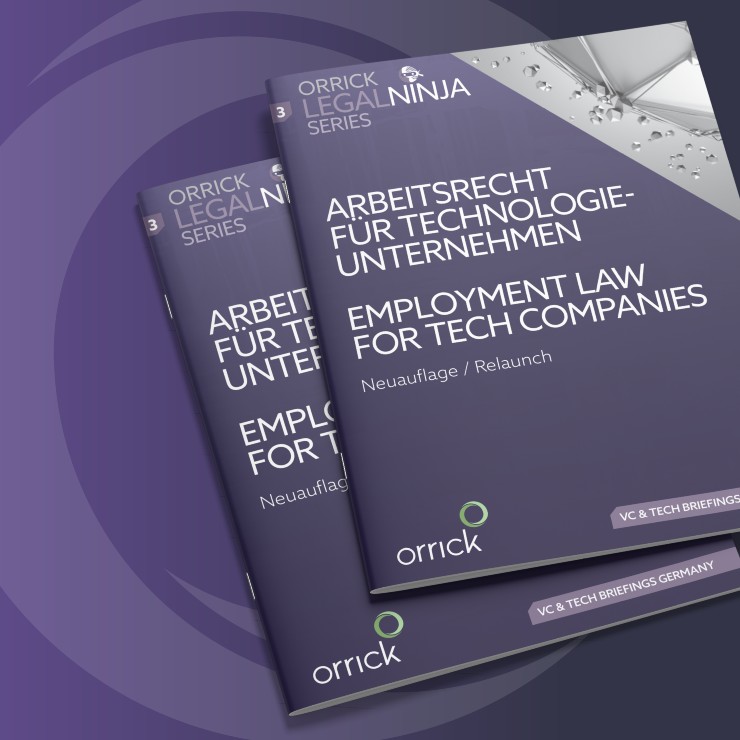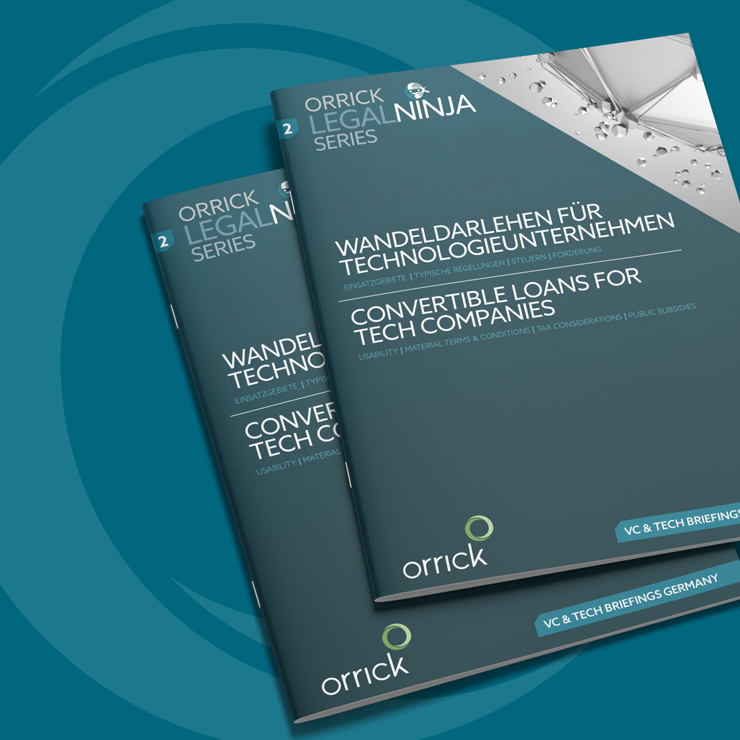The composition of a founder team and the way equity is split can have far-reaching implications for the success of a start-up. OLNS#15 shares some general considerations and what we would consider best practices on how to think about solo founders versus founding teams, team composition, and how to approach the equity split. This is augment with interviews with experienced investors at venture capital powerhouses, who share their insights on what makes a strong founder team that has a shot at building a great company. In addition, this guide presents the findings of the OLNS Founder Equity Study 2025, a unique empirical study examining the composition of founder teams and the distribution of equity in over 2,100 German start-ups.
Learn more
The Orrick Legal Ninja Series (OLNS)
VC & Tech Briefings - Germany
The Orrick Legal Ninja Series (OLNS) is Orrick's flagship content platform for the German entrepreneurship ecosystem. As a global law firm with deep roots in the world's leading technology markets, we are passionate about supporting German founders and investors – not just with legal advice, but with holistic, actionable insights that help shape the long-term success of their ventures.

What sets OLNS apart? We go beyond the legal fine print. Our series explores the intersections of law, business, and innovation, drawing on lessons learned from national and international tech hubs. We believe that the best advice for entrepreneurs and investors is grounded in a broad understanding of how legal frameworks, market trends, psychology and company-building strategies interact over time.
OLNS is co-authored by a multidisciplinary team of lawyers and business professionals from our German and international offices. Together, we tap into Orrick's global reservoir of venture capital, corporate innovation, and technology know-how to deliver content that is relevant, practical, and forward-looking for the German innovation scene.
Why “Ninja”? Let's be honest – some of us did watch a few too many action movies in the 1990s. But more importantly, “Ninja” has become shorthand for someone who combines skill, agility, and relentless curiosity to master their craft. That's the spirit we bring to our work with tech companies and investors, and it's the mindset we hope to inspire in our readers: to become "legal ninjas" in navigating the challenges and opportunities of entrepreneurship.
We invite you to join the conversation. Whether you're a founder, investor, or ecosystem builder, we'd love to hear your experiences and perspectives. OLNS is a living project – constantly evolving as the tech landscape changes and as we learn from you.
In addition to the in-depth publications of the Orrick Legal Ninja Series, in our Orrick Legal Ninja Snapshots, we pick up on the latest developments and provide you with quick, digestible insights into current legal issues that are highly relevant to the German venture/tech ecosystem. Click here to find out more.
OLNS Publications
Now Available: The second, revised and expanded 2025/26 edition of OLNS#8 on ESOPs, VSOPs & Co. shows how to build employee ownership programs that drive long-term commitment. Learn more
In German start-ups, Growth Shares are particularly intriguing for motivating key employees and late co-founders. This is especially true when the company has already reached a substantive equity value, making further stakes in the company as hardly affordable or burdened with hefty taxes. While for "standard" shares, the latest amendments of sec.19a German Income Tax Act (Einkommensteuergesetz – "EStG") now allows to defer the wage tax on the non-cash benefit, a better tax treatment can often be achieved with Growth Shares.
Learn more
The German tech ecosystem matures and achieving exits is arguably one of the last missing ingredients to supercharge the German tech ecosystem. In a stubbornly difficult IPO market, mergers and acquisitions often offer the only practical route to liquidity for high-growth companies and its investors. With special attention on the sale of venture-backed tech companies, this playbook provides buyers and sellers a guide to approaching M&A transactions involving German tech companies.
Learn more
Advisory boards are a standard corporate governance feature of VC-backed German start-ups. OLNS#12 explains the role of the advisory board in the corporate governance system of a start-up from a legal perspective, highlights duties and liability risks, and provides practical guidance on the appropriate composition of the advisory board across the various financing rounds. It also shares some best practices for the operation of advisory boards. In addition, this guide presents the initial results of the OLNS Board Study 2024/2025S, an empirical study on the size and composition of advisory boards in the various financing stages of more than 2,900 German start-ups.
Learn more
Venture financings and deal terms in the U.S. and in Germany have many similarities but there are also some differences. To help navigate these challenges, we have put together OLNS#11. OLNS#11 is a guide that offers founders and investors with a "German market" background an introduction to U.S. VC deals and helps them understand where U.S. deals differ from a typical German financing. OLNS#11 also augments and builds on OLNS#7 that explains how German founder teams can get into a U.S./German holding structure (the famous flip).
Learn more
German universities are increasingly becoming entrepreneurial hotbeds, but university spin-offs face some unique challenges, some of which could – with the right support systems and policies in place – be considerably less stressful. OLNS#10 helps founders by providing them with an overview of how to get a university-based start-up off the ground. We will discuss founder team composition and equity-splits, the composition of the first cap table, important considerations for the initial legal set-up (founder HoldCos and U.S. holding structures) as well as financing considerations. We will also return again and again to the specifics of IP-based spin-offs, especially when it comes to how a start-up can access the university’s IP in an efficient manner.
Learn more
Founding and scaling a tech company is a daunting challenge. OLNS#9 summarizes our learnings from working with countless start-ups and scale-ups around the world. We will give hands-on practical advice on how to set up a company, how (not) to compose your cap table, founder team dynamics and equity splits, available financing options, funding process, most important deal terms and much more.
Learn more
Employee ownership is one of the most powerful yet misunderstood tools for attracting, motivating, and retaining top talent in start-ups and scale-ups. When you cannot outpay big players and IPO timelines keep stretching, smart equity design has become mission-critical. With the second, revised and expanded 2025/26 edition of OLNS#8, we break down the evolving landscape in Germany and beyond, highlight global best practices, and show founders how to design and implement programs that drive long-term commitment.
Learn more
Operating a German technology company in a two-tier structure with a U.S. holding company can have great advantages, most notably with respect to fundraising in early rounds and increased exit options and valuations. However, getting into a two-tier structure (be it through a "flip" or a set-up from scratch) requires careful planning and execution. This guide shows you what to consider and how to navigate legal and tax pitfalls.
Learn more
Steering a young technology company through a downturn market is a challenging task but if done effectively, the start-up can be well positioned to benefit once the markets come back. While OLNS#5 focused on raising venture financing during a downturn, in this guide, we want to give a comprehensive overview of the legal aspects of some of the most relevant operational matters that founders may now need to deal with, including monitoring obligations and corresponding liabilities of both managing directors and the advisory board, workforce cost reduction measures, IP/IT and data privacy challenges in a remote working environment, effective contract management and loan restructuring.
Learn more
In the current environment, all market participants, and especially entrepreneurs, need to be prepared for a softening in venture financing and make plans to weather the storm. In this guide, we share some of our observations on the most recent developments and give practical guidance for fundraising in (historically) uncertain times. We will first provide a brief overview of the current fundraising environment, and then highlight likely changes in deal terms and structural elements of financings that both entrepreneurs and (existing) investors will have to get their heads around.
Learn more
Corporates are under massive pressure to innovate to compete with new disruptive technologies and a successful CVC program offers more than capital – access to company resources and commercial opportunities are key features that justify CVC’s prominence. This guide serves to share best practices for corporates and start-ups participating in the CVC ecosystem and also to ask important questions that will shape future direction.
Learn more
Young technology companies are focused on developing their products and bringing VC investors on board. Every euro in the budget counts, personnel is often limited, and legal advice can be expensive. For these reasons, legal issues are not always top of mind. But trial and error with employment law can quickly become expensive for founders and young companies.
Learn more
Due to flexibility and reduced complexity compared to fully-fledged equity financings, convertible loans are an important part of a start-up's financing tool box. In a nutshell: A convertible loan is generally not meant to be repaid, but shall rather be converted into an equity participation in the start-up at a later stage.
Learn more
Venture Debt - A potentially attractive complement to equity financings for start-ups that already have strong investors on board. This is a highly flexible instrument with very little dilutive effect for founders and existing investors.
Learn more
Client Results
Proxima Fusion Raises €130M Series A to Build World’s First Stellarator-based Fusion Power Plant
2 minute read | June.12.2025
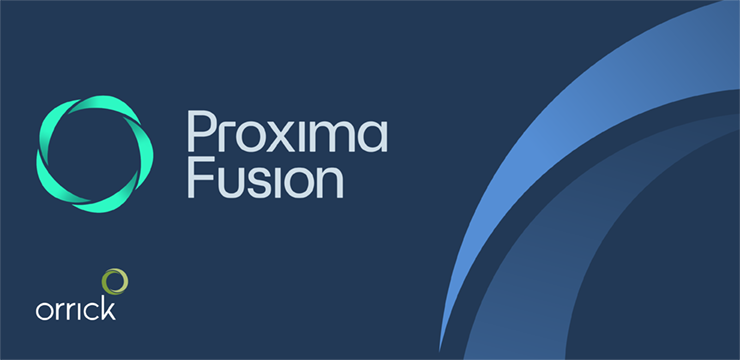
Insights
Is Your Start-up Looking for Public Money? Then Convertible Loans Might Be a Problem
15 minute read | January.30.2026

Making U.S. ESOPs Work for German Employees – A Practical Guide to Navigating Section 19a EStG in Cross-border Structures
9 minute read | November.27.2025
